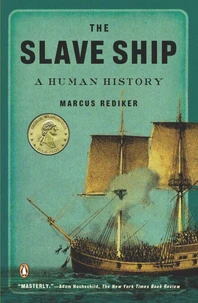Outlaws of the Atlantic. Sailors, Pirates, and Motley Crews in the Age of Sail
Par :Formats :
Disponible dans votre compte client Decitre ou Furet du Nord dès validation de votre commande. Le format ePub protégé est :
- Compatible avec une lecture sur My Vivlio (smartphone, tablette, ordinateur)
- Compatible avec une lecture sur liseuses Vivlio
- Pour les liseuses autres que Vivlio, vous devez utiliser le logiciel Adobe Digital Edition. Non compatible avec la lecture sur les liseuses Kindle, Remarkable et Sony
- Non compatible avec un achat hors France métropolitaine
 , qui est-ce ?
, qui est-ce ?Notre partenaire de plateforme de lecture numérique où vous retrouverez l'ensemble de vos ebooks gratuitement
Pour en savoir plus sur nos ebooks, consultez notre aide en ligne ici
- Nombre de pages248
- FormatePub
- ISBN978-0-8070-3310-4
- EAN9780807033104
- Date de parution12/08/2014
- Protection num.Adobe DRM
- Taille3 Mo
- Infos supplémentairesepub
- ÉditeurBeacon Press
Résumé
This maritime history "from below" exposes the history-making power of common sailors, slaves, pirates, and other outlaws at sea in the era of the tall ship. In Outlaws of the Atlantic, award-winning historian Marcus Rediker turns maritime history upside down. He explores the dramatic world of maritime adventure, not from the perspective of admirals, merchants, and nation-states but from the viewpoint of commoners-sailors, slaves, indentured servants, pirates, and other outlaws from the late seventeenth to the early nineteenth century.
Bringing together their seafaring experiences for the first time, Outlaws of the Atlantic is an unexpected and compelling peoples' history of the "age of sail." With his signature bottom-up approach and insight, Rediker reveals how the "motley"-that is, multiethnic-crews were a driving force behind the American Revolution; that pirates, enslaved Africans, and other outlaws worked together to subvert capitalism; and that, in the era of the tall ship, outlaws challenged authority from below deck. By bringing these marginal seafaring characters into the limelight, Rediker shows how maritime actors have shaped history that many have long regarded as national and landed.
And by casting these rebels by sea as cosmopolitan workers of the world, he reminds us that to understand the rise of capitalism, globalization, and the formation of race and class, we must look to the sea.
Bringing together their seafaring experiences for the first time, Outlaws of the Atlantic is an unexpected and compelling peoples' history of the "age of sail." With his signature bottom-up approach and insight, Rediker reveals how the "motley"-that is, multiethnic-crews were a driving force behind the American Revolution; that pirates, enslaved Africans, and other outlaws worked together to subvert capitalism; and that, in the era of the tall ship, outlaws challenged authority from below deck. By bringing these marginal seafaring characters into the limelight, Rediker shows how maritime actors have shaped history that many have long regarded as national and landed.
And by casting these rebels by sea as cosmopolitan workers of the world, he reminds us that to understand the rise of capitalism, globalization, and the formation of race and class, we must look to the sea.
This maritime history "from below" exposes the history-making power of common sailors, slaves, pirates, and other outlaws at sea in the era of the tall ship. In Outlaws of the Atlantic, award-winning historian Marcus Rediker turns maritime history upside down. He explores the dramatic world of maritime adventure, not from the perspective of admirals, merchants, and nation-states but from the viewpoint of commoners-sailors, slaves, indentured servants, pirates, and other outlaws from the late seventeenth to the early nineteenth century.
Bringing together their seafaring experiences for the first time, Outlaws of the Atlantic is an unexpected and compelling peoples' history of the "age of sail." With his signature bottom-up approach and insight, Rediker reveals how the "motley"-that is, multiethnic-crews were a driving force behind the American Revolution; that pirates, enslaved Africans, and other outlaws worked together to subvert capitalism; and that, in the era of the tall ship, outlaws challenged authority from below deck. By bringing these marginal seafaring characters into the limelight, Rediker shows how maritime actors have shaped history that many have long regarded as national and landed.
And by casting these rebels by sea as cosmopolitan workers of the world, he reminds us that to understand the rise of capitalism, globalization, and the formation of race and class, we must look to the sea.
Bringing together their seafaring experiences for the first time, Outlaws of the Atlantic is an unexpected and compelling peoples' history of the "age of sail." With his signature bottom-up approach and insight, Rediker reveals how the "motley"-that is, multiethnic-crews were a driving force behind the American Revolution; that pirates, enslaved Africans, and other outlaws worked together to subvert capitalism; and that, in the era of the tall ship, outlaws challenged authority from below deck. By bringing these marginal seafaring characters into the limelight, Rediker shows how maritime actors have shaped history that many have long regarded as national and landed.
And by casting these rebels by sea as cosmopolitan workers of the world, he reminds us that to understand the rise of capitalism, globalization, and the formation of race and class, we must look to the sea.


















